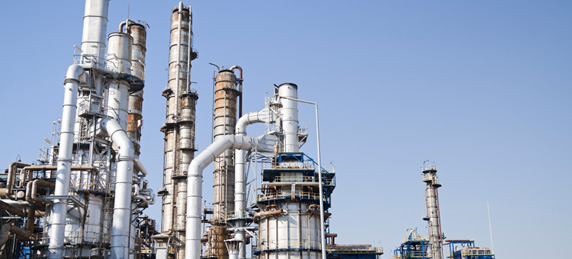Activities for Accident Prevention - Pilot Project Refineries
The state of industrial plant safety with regard to water protection for the countries of the River Danube catchment area has been targeted for exemplary improvement. For this purpose inspectors from the Danube neighbour states should present the checklist methodology that has been developed for plant evaluation and testing, together with the practical application of the method. Both the effectiveness and the comparability of the technical safety tests made can be increased through use of checklists by trained inspectors. This checklist methodology is to be further perfected to include the technical safety requirements of refineries. Further to this the fact should be communicated that the methodology developed is not only for developed industrial countries, but that it should be applied particularly in those countries where safety standards are not so highly developed. The checklist methods should be further developed to the effect that the current risk potential can be established following plant testing and evaluation.

The following focal tasks are worked on:
1. Refinery plant check
It is foreseen that the checklists will be applied jointly by the R+D experts and the inspectors on the plant site at the selected refineries (1 refinery in Germany and 1 in Romania) and the strengths and weaknesses established. The focus of the site visits will be to reveal and describe the risk sources that might lead to serious water pollution.
2. Comparison
The plant check must be made on plant in the same industry, but at different stages of safety standard development in order to assure a general and unrestricted recommendation for the applying of the checklist method. This application will make it possible to clearly localise and describe the differences.
3. Recommendations for refineries
As a result of the knowledge about the various technical safety standard levels it will be possible to formulate the knowledge that is indispensable for the safe operation of a refinery. This will be formulated in terms of a recommendation and will be discussed and communicated at different levels. The further development of the checklist method requires that newly developed recommendations will find their way into the checklists. For this purpose it is important to develop the catalogue of measures belonging to this with the addition of new short, medium and long tem measures.
4. Training of inspectors
The training of inspectors is of particular importance for the implementation of the overall objective. The seminar is planned as a 4 day training event at each seminar location. It is intended that from each Danube catchment area country two inspectors participate in the seminar.
5. Quantification of accidental risk spots
The ICPDR developed a method for assessing potential dangers from environmentally relevant industrial plant. On the basis of this it was possible to establish the WRI (water risk index) and the accidental risk spots (ARS).
The current risk can only be established and assessed on the basis of a thorough testing and evaluation of the relevant plant. The checklist method that has been developed is outstandingly suitable for this purpose. The most varied industrial plant can be checked and evaluated simply, in structured form and in accordance with international recommendations by means of this method.
A possibility will be developed for characterising the current risk posed by a plant on the basis of this methodology.
» zurück
» Projekt
» Recommendations
» Functional units
» Risk areas
» Branches
» Checklists
» Functional units
» Risk areas
» Explanations
» Trainings
» Refineries
» Real Risk






